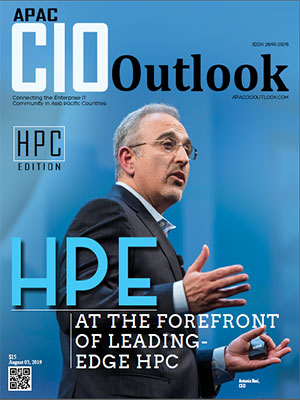The widespread adoption of High Performance Computing (HPC) systems beyond the scientific and academic world is quite eminent today. In the business of all sizes and types, HPC is expanding its wings more into transaction processing and data warehousing. Previously, high performance computing technology or HPC was used in the defense and aerospace sector for preparing and simulating a routing framework. However, as HPC proved to be beneficial in the design and development of advanced vehicles, satellite mapping, high-resolution image processing, weaponry, and cryptographic analysis, the government and industrial sector began to invest heavily in HPC.
The applications of HPC solutions have grown on a larger scale with recent advances in computing, network, and storage technologies. Whether it is working toward saving lives, understanding the universe, building better machines, neutralizing the risks or anticipating customer experience, HPC has made an impact on the success of an organization and shaping their business for the future. But HPC’s potential is not limited to just these tasks.
While most of the HPC work continues to be done in-house, in dedicated or private clouds, the workloads in public cloud are growing. Organizations are leveraging public cloud HPC solutions to solve machine learning and AI challenges. HPC also can refine data from massive sets of information, and generate insights quickly while advancing promising technologies like artificial technologies, paving the way for significant breakthroughs.
With the rise of the graphics processing unit or GPU in HPC, they have proved to be superior chips for processing high workloads due to their singular focus on data computations. Large data sets are now being used to train machine learning models while computing capacity is being increased to train larger and complex models faster. From self-driving cars to the internet of things devices like Alexa, computing models are shifting from centralization back to decentralization leading to the development of edge computing.
The rising popularity of the public cloud has shifted workloads out of data centers into centralized data centers across the globe. Edge computing is speeding up the interactions, removing latency, and reducing the network while computing the load back to centralized data centers. As the processing required in the cloud becomes lesser, the response time becomes faster, and HPC is the key to making this possible. With the appropriate tools to synthesize and process data, it has become possible to bring HPC from the world of research labs to the mainstream industry.
As varieties of solutions are being introduced into the market, organizations need to ensure that they choose the right HPC solution to help them in their journey forward. They need to build great relationships with HPC solution providers who can design and develop the most advanced HPC solutions as well as address the challenges of deploying and managing these solutions. Aiming to aid organizations in finding the most fitting solution, a distinguished panel of CIOs, CEOs, VCs, and analysts along with APAC CIO Outlooks’ diligent editorial team has analyzed several solutions providers and put together the best in the industry.
We present to you “Top 10 HPC Solution Providers - 2019.”



























